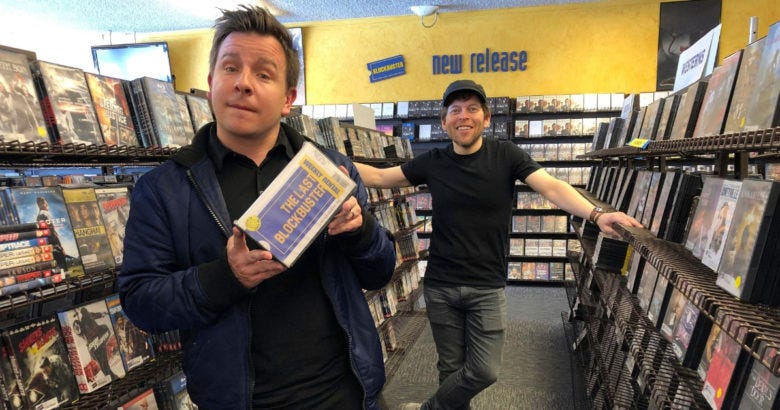4/8 – What’s Next
Happy Monday!
Here is a quote to start your week with:
“At every period of history, people have believed things that were just ridiculous, and believed them so strongly that you risked ostracism or even violence by saying otherwise. If our own time were any different, that would be remarkable. As far as I can tell it isn’t.” – Paul Graham
I hope this newsletter instills some optimism, enjoy!
Articles to Read.
The World’s Poorest People Are Getting Richer Faster
In 1820, 94% of the world’s population lived in extreme poverty. In 1990, 34.8%, and in 2015, just 9.6%.
In the last quarter century, more than 1.25 billion people escaped extreme poverty – that equates to over 138,000 people being lifted out of poverty every day. If it takes you five minutes to read this article, another 480 people will have escaped the shackles of extreme of poverty by the time you finish. Progress is awesome. In 1820, only 60 million people didn’t live in extreme poverty. In 2015, 6.6 billion did not.
—
Play Long-term Games With Long-term People
Pick an industry where you can play long-term games with long-term people. Long-term players make each other rich. Short-term players make themselves rich.
All returns in life come from compound interest over many turns of long-term games—and they usually come at the end.
People are fair with each other when they know there will be more turns of the game. Friction goes down with each turn, so you can do bigger and bigger things together.
—
Pessimism is intellectually seductive in a way optimism only wishes it could be.
Tell someone that everything will be great and they’re likely to either shrug you off or offer a skeptical eye. Tell someone they’re in danger and you have their undivided attention.
Hearing that the world is going to hell is more interesting than forecasting that things will gradually get better over time, even if the latter is accurate for most people most of the time. Pessimism can be hard to distinguish from critical thinking and is often taken more seriously than optimism, which can be hard to distinguish from salesmanship and aloofness.
—
Manager Of The Last Blockbuster Video On Earth Reveals How It Outlasted The Others

There are challenges that come with running the last Blockbuster Video on the planet. The computer system must be rebooted using floppy disks that only the general manager, a solid member of Gen X, knows how to use. The dot-matrix printer broke, so employees write out membership cards by hand.
Yet none of that has kept this humble franchise in an Oregon strip mall from thriving as the advent of on-demand movie streaming laid waste all around it.
—
Dumping Capitalism Won’t Save the Planet

Public-private cooperation will do more to limit climate change than eco-socialism.
Since socialist leader Evo Morales took power in Bolivia, living standards have improved substantially for the average Bolivian, which is great. But this has come at the cost of higher emissions. Meanwhile, the capitalist U.S managed to decrease its per capita emissions a bit during this same period (though since the U.S. is a rich country, its absolute level of emissions is much higher).
The best hope for the climate therefore lies in reducing the tradeoff between material prosperity and carbon emissions. That requires technology — solar, wind and nuclear power, energy storage, electric cars and other vehicles, carbon-free cement production and so on. The best climate policy plans all involve technological improvement as a key feature.
—
It’s Harder to Get a Job at Walmart Than It Is to Get Into Harvard

The Washington Post reports that when a new Walmart opened in D.C., 23,000 people vied for 600 job openings. That means just 2.6% were accepted. Compare that to Dartmouth’s 11.5%, Cornell’s 14%, University of Pennsylvania’s 10% and so on, and you’ll see that Walmart is way choosier than all the Ivy League institutions. Even Harvard. We repeat, even Harvard.
—
Market Research, Wireframing, and Design
Most of the time, end-users only see the solid path through the maze taken by one company. They don’t see the paths not taken by that company, and certainly don’t think much about all the dead companies that fell into various pits before reaching the customer.
The maze is a reasonably good analogy. Sometimes there are pits you just can’t cross. Sometimes you can get past a particular minotaur/enter a new market, but only after you’ve gained treasure in another area of the maze (Google going after email after it made money in search). Sometimes the maze itself shifts over time, and new doors open as technologies arrive (Pandora on the iPhone). Sometimes there are pits that are uncrossable for you, but are crossable by another (Webvan failed, but Amazon, Walmart, and Safeway have the distribution muscle to succeed). And sometimes there are pitfalls that are only apparent when one company has reached scale, problems which require entering the maze at the very beginning with a new weapon. A good founder is thus capable of anticipating which turns lead to treasure and which lead to certain death.
┄
More to Check Out:
– Why Some Doctors Hesitate To Screen Smokers For Lung Cancer
– 1 Million Pounds of Shmurah Matzah: How Passover Production Continues to Rise
– Paul Rudd Ageless Quiz
– The Day the Dinosaurs Died
– Change a View (cool website for having thoughtful discussions)
Books I Read This Week.
FAQ: How? – I read physical books and I read every morning and sometimes in the evening. I think I am a fast reader (and do miss some details) but optimize for finding interesting stories and themes.
- Command in War: Traces the history of strategy/comms in war (from Ancient Greece to the IDF to Vietnam). “The battlefield is a scene of constant chaos. The winner will be the one who controls that chaos, both his own and the enemies.” – Napoleon
- Most Likely to Succeed: Preparing Our Kids for the Innovation Era – Fairly accurate analysis of “how we got to this mess” (today’s education system). Disagree with some of the proposed solutions but definitely empathize the core problems outlined.
- The Travels of Lao Can: Late 19th century Chinese social satire/novel that describes the hypocritical incompetence of the empire’s bureaucracy. Super interesting (and only ~ 160 pages).
- The Wizard of Menlo Park: How Thomas Alva Edison Invented the Modern World – So many learnings – mainly covers how Edison, the celebrity, interacted with the world. “Only in folklore does the world beat a path to the inventor of the better mousetrap.”
Let me know if you have/need any recommendations!
My Update.
- This year, my only objective has been to do less things and much more of them. So far, I am doing rather well via this metric. I have said no to many opportunities and am focusing in on the things I care most about. My days are simple and busy.
- How can I help you? Looking for a job/internship? Reach out! (it is free!!).
Thanks so much for reading! Find me on twitter : )